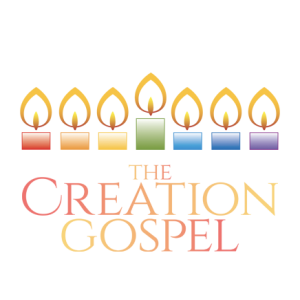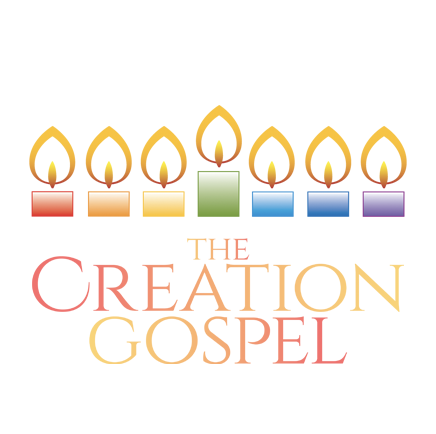Episodes

Monday Sep 16, 2024
Monday Sep 16, 2024
The Wild Kingdom
As we approach the High Holy Days, we prepare to read a passage of Scripture on The Feast of Trumpets called The Akeidah. It refers to the binding of Isaac. A key verse is this:
- Isaac spoke to Abraham his father and said, “My father!” And he said, “Here I am, my son.” And he said, “Behold, the fire and the wood, but where is the lamb for the burnt offering? Abraham said, “God will provide for Himself the lamb for the burnt offering, my son.” So the two of them walked on together.” (Ge 22:7)
For now, notice two things:
1. Isaac respectfully addresses Avraham, "My father."
2. Avraham responds, "Hineni." "Here I am, my son."
They are in unity as to what is about to happen. Avraham will sacrifice Isaac, and Isaac will be figuratively resurrected from the dead. From henceforth, there is no question as to the line of succession. Two sons. One will be labeled "a wild donkey" (Ge 16:11-12), and one will receive the promise of a Land, Covenant, and People to pass along to his offspring. Although Avraham longed for Ishmael to live before Adonai, the birthright was awarded to the one who would sacrifice himself. The son walks with the father. The Son walks with the Father.
When it is time for Isaac to in turn bless one of two sons, he nearly makes a mistake. Rivkah his wife knows that Esau unburdened himself of the birthright for a bowl of stew. He "hated" the promise, though later he sought it carefully with tears when he realized he wasn't entitled to the blessings if he didn't accept the birthright. Believers are not so different today. They quickly claim the promises, but when it comes to the obligations of the Torah, they are nowhere to be found. They're just playing a wild game. In order to deceive Isaac, Rivkah instructs Jacob to dress in Esau's special garment and to put goat skins on his arms.
- “So he [Jacob] came close and kissed him; and when he smelled the smell of his garments, he blessed him and said, “See, the smell of my son is like the smell of a field which the LORD has blessed...” (Ge 27:27)
Although the voice didn’t add up to Isaac, the pleasant field fragrance was apparently a singular aroma, one not easily duplicated or confused with another. Where did it come from?
The sages say it was from the blessed field of Creation, the garment Elohim made for Adam when he drove the first couple from the Garden. The garment was handed down to Noah, but after the Flood, the fear and dread of mankind fell upon the animal kingdom. With the special garment, though, the animal kingdom continued to have no fear. It still held the fragrance of obedient Eden. The animals would approach anyone wearing the garment, recognizing his authority in the Creation. It is thought that eventually Nimrod "the mighty hunger before the Lord" took control of the garment, which gave him power over the animals. When people saw this special power, they submitted themselves to him, giving him dictatorial power. At some point, Esau killed Nimrod and took this pleasant garment for his own:
- Then Rebekah took the best (chemdah) garments of Esau her elder son, which were with her in the house, and put them on Jacob her younger son. (Ge 27:15)
וַתִּקַּח רִבְקָה אֶת־בִּגְדֵי עֵשָׂו בְּנָהּ הַגָּדֹל הַחֲמֻדֹת אֲשֶׁר אִתָּהּ בַּבָּיִת וַתַּלְבֵּשׁ אֶת־יַעֲקֹב בְּנָהּ הַקָּטָן׃
חֶמְדָּה chemdâh feminine of H2531; delight:—desire, goodly, pleasant, precious.
Chemdah [chamud/chamuda] can apply to precious things like jewelry or clothes, but it especially applies to the Land of Israel, the reflection of the Garden above it. Here are some examples of its use in context with the Land:
- “Then they despised the pleasant land; they did not believe [הֶאֱמִינוּ] in His Word...” (Ps 106:24)
- “...but I scattered them with a storm wind among all the nations whom they have not known. Thus the land is desolated behind them so that no one went back and forth, for they made the pleasant land desolate.” (Zech 7:14)
Israel, “the pleasant Land,” is the most beautiful inheritance one may have among all the nations that the peoples may inherit. Those who bear the lingering fragrance of obedience founded on their belief, or faith, will be collected from the nations to inherit with “sons”:
- ‘Return, O faithless sons,’ declares the LORD; ‘For I am a master to you, and I will take you one from a city and two from a family, and I will bring you to Zion.’ “Then I will give you shepherds after My own heart, who will feed you on knowledge and understanding. It shall be in those days when you are multiplied and increased in the land,” declares the LORD, “they will no longer say, ‘The ark of the covenant of the LORD.’ And it will not come to mind, nor will they remember it, nor will they miss it, nor will it be made again. At that time they will call Jerusalem ‘The Throne of the LORD,’ and all the nations will be gathered to it, to Jerusalem, for the name of the LORD; nor will they walk anymore after the stubbornness of their evil heart. In those days the house of Judah will walk with the house of Israel, and they will come together from the land of the north to the land that I gave your fathers as an inheritance. “Then I said, ‘How I would set you among My sons and give you a pleasant land, the most beautiful inheritance of the nations!’ And I said, ‘You shall call Me, My Father, and not turn away from following Me.’ (Je 3:14-19)
That's the key. Those who return will say, "My Father" and not turn away from Him and His commandments as Esau did. Esau, the Red One, the wild red beast of Revelation, is a human in whom the soul practices subjugation of the spirit. The spiritual authority of the Father is only their second thought, hindsight, with regret for the goods lost, not necessarily the rift with the Father. As an example, Esau took two idolatrous wives without his parents’ permission, and only later did he take a daughter of Ishmael.
Esau only regrets selling his birthright when he realizes the “loot” of the blessing was also forfeited. The scarlet beast is fully invested in the economic system to satisfy his soul. He serves the Father to obtain the goods and crown. He loves competition and games because he loves to win. That's why he hunts. Not just to eat, but to win. The taste of wild game is the reward of the hunt, fueling feelings of superiority and dominance over the creation. In Esau's case, he doesn't even want to wear the garment of the blessed field to hunt the wild game for his father. It's not enough of a challenge if the animals just walk up to him. It wouldn't have the taste of "wild" game.
Notice the difference and progression of these “my fathers” related to garments:
- Then he [Jacob] came to his father and said, “My father.” And he said, “Here I am (Hineni). Who are you, my son?” (Ge 27:18)
- Then he [Esau] also made savory food and brought it to his father; and he said to his father, “Let my father arise and eat of his son's game, that you may bless me.” (Ge 27:31)
- When Esau heard the words of his father, he cried out with an exceedingly great and bitter cry, and said to his father, “Bless me, even me also, O my father!” (Ge 27:34)
Jacob approaches in shepherd-skins and says, “My father.”
Esau approaches and orders his father to arise, eat what he has hunted instead of shepherded, and bless him.
Only after Esau realizes what has happened is he humbled to plea, “O my father.”
Yeshua explains that real "food" is not wild, but obedient work on the obligations of the birthright: "Jesus said to them, 'My food is to do the will of Him who sent Me and to accomplish His work.'" (Jn 4:34)
So, who are you, my son? Who are you, my daughter? Are you wearing the garment with the fragrance of obedience in Eden? Are you serving the Father for the loot, or to sacrifice for the sake of all the souls who will be added to the Kingdom?
Now is the time to examine our garments. Do they smell of the fruitful, sown seed of the diligent servant who went weeping on his way, carrying a bag of seed? Or do they smell of wild game?
When the last shofar blows, he who wept first will reap gladness and joy. He who practiced disobedience will weep last, find out that his reward was only in the physical world, the here and now. His garment could not withstand the fiery swords of the cheruvim at the entrance to the blessed field.
Seek first the Kingdom, the birthright of the redeemed. It may feel as though you are bound, but you will resurrect to more riches than eternity can hold.
At the resurrection, only then all the things of the blessings will be added to you.
Walk on with the Father. Forever.
Please SUBSCRIBE to our newsletter to get new teachings.


No comments yet. Be the first to say something!